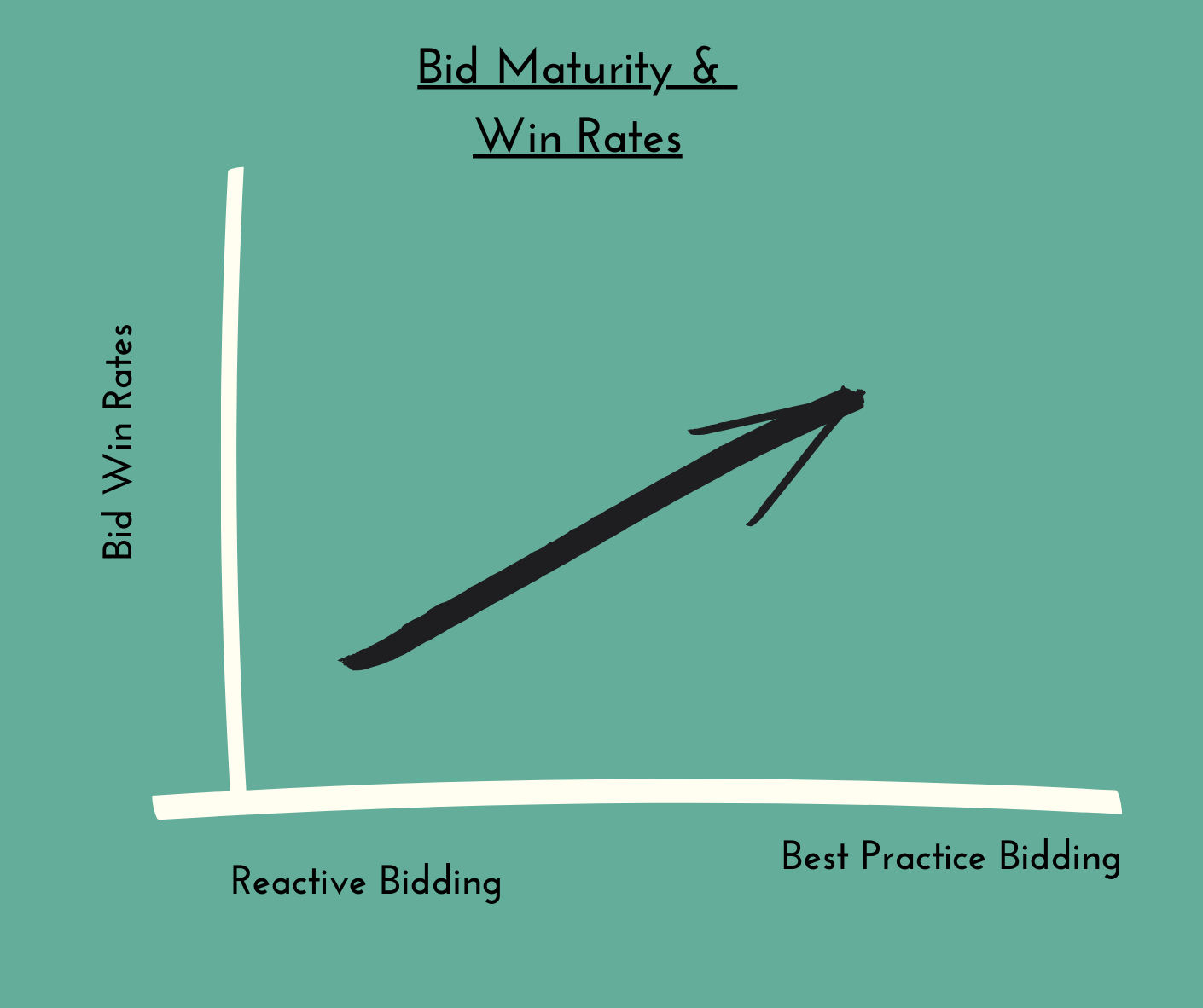Last minute, knee jerk reactions to ‘bid’. The mad scramble to assemble the bid team. Chasing content over the weekend.
There are tell-tale signs that you’re in firefighting mode. Are any of the following scenes or comments familiar to you?
- Subject matter expert turns up late to a progress meeting*: “I’ve done zero on the tender yet – I’m flat-out just keeping on top of business as usual!”
- Subject matter expert emails on the date their assigned content is due (without following any document naming conventions)*: “Hi – I know I’m over the word count, but you’re the wordsmith…”
- Defensive Sales Manager at a Board Meeting*: “Not sure why we lost that one – the winning bidder probably just dropped their pants on price.”
These are common symptoms of a reactive bidding process. Typical of an immature bid operation, reactive bidding processes undermine a business’ bidding capability and capacity, diminishing win rates.
That’s because, rather than project managing the process to achieve a quality standard, the bid manager is distracted by looming deadlines and firefighting to avoid the bid effort from suffering a critical failure.
Six prime examples of bid firefighting and a reactive bid organisation include:
- Not planning a pipeline ahead of the release of an opportunity
- Diving straight into proposal writing and not workshopping the customer requirements
- Shortcutting on analysing the customer, the competition or past lessons learned due to looming deadlines
- Searching for content lost in email trails or past proposals
- Struggling to understand which bids, tasks, or team members should receive priority in the work-winning process
- Editing submissions at the point of upload to fit word count limits or formatting requirements
Over time, instead of building business value by refining processes, collecting data or optimising systems to improve your bid capability and capacity, the reactive bid operation continues to consume time and effort on bids won by the competition.
There’s also a lot of overtime, work on weekends and so bid burnout (link to bid burnout article from bidhive.com) and staff churn within the team.
What’s Wrong with a Reactive Bid Management Process?
Evidence demonstrates that a reactive bid organisation simply does not win as many bids as a more mature bid organisation (and size is no longer a barrier to winning a contract thanks to new SME thresholds – link to article on Bidhive re: SME threshold opportunities).
Developing a strategic process and a proactive culture rather than being reactive to the tender or bid is a distinctly beneficial approach to qualifying and winning opportunities.

A more mature bid process directly correlates with higher bid win rates
Further, the distance between the reactive and the more mature bidding organisation continues to grow as the latter builds its bid capability and capacity and competitive strength with each tender opportunity.
Tips to become a more proactive bidding organisation
1. Develop a content or knowledge library as your single source of truth. Create a taxonomy branch structure that aligns to common evaluation criteria and questions within them.
2. Regularly update your library and assign a content owner and expiry dates.
3. Search for planned opportunities, open tenders, and monitor cyclical tenders (panels, frameworks) that have contract expiry dates.
4. Develop a centre for process excellence to eliminate inefficiencies and reduce cost by integrating sales, capture and proposal efforts.
By bringing faster insights to all stakeholders, operational planning and bidding becomes more aligned to strategic goals. When this becomes a proactive team effort, organisations benefit from increased win rates and revenue while getting tasks done quicker without reinventing the wheel.


